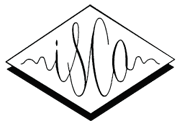Deep Noise Suppression With Non-Intrusive PESQNet Supervision Enabling the Use of Real Training Data
(Oral presentation)
| Ziyi Xu (Technische Universität Braunschweig, Germany), Maximilian Strake (Technische Universität Braunschweig, Germany), Tim Fingscheidt (Technische Universität Braunschweig, Germany) |
|---|
Data-driven speech enhancement employing deep neural networks (DNNs) can provide state-of-the-art performance even in the presence of non-stationary noise. During the training process, most of the speech enhancement neural networks are trained in a fully supervised way with losses requiring noisy speech to be synthesized by clean speech and additive noise. However, in a real implementation, only the noisy speech mixture is available, which leads to the question, how such data could be advantageously employed in training. In this work, we propose an end-to-end non-intrusive PESQNet DNN which estimates perceptual evaluation of speech quality (PESQ) scores, allowing a reference-free loss for real data. As a further novelty, we combine the PESQNet loss with denoising and dereverberation loss terms, and train a complex mask-based fully convolutional recurrent neural network (FCRN) in a “weakly” supervised way, each training cycle employing some synthetic data, some real data, and again synthetic data to keep the PESQNet up-to-date. In a subjective listening test, our proposed framework outperforms the Interspeech 2021 Deep Noise Suppression (DNS) Challenge baseline overall by 0.09 MOS points and in particular by 0.45 background noise MOS points.






